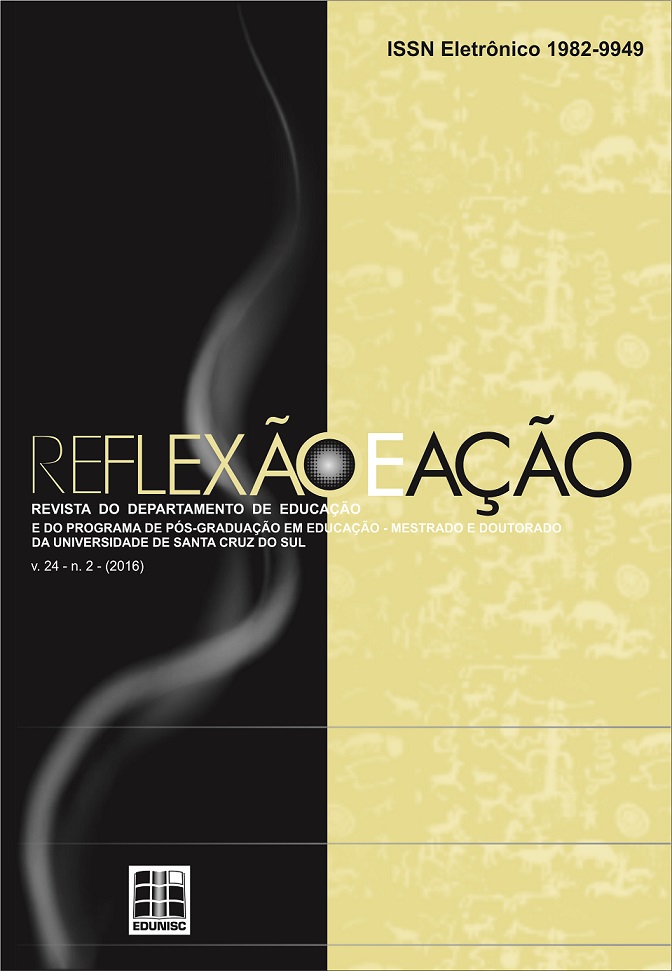PEDAGOGICAL TOURISM AS A TEACHING STRATEGY: EXPLORING THE IN LOCO IN THE TOURISM PROFESSIONAL TEACHING
DOI:
https://doi.org/10.17058/rea.v24i2.3042Keywords:
Pedagogical Tourism, Technical And Professional Teaching Of Tourism, Curricular Structure Per SkillsAbstract
The article focuses on the discussion about the teaching experience of exploring the pedagogical tourism in the technical and professional teaching of Tourism accomplished through the case study of the Technical Course in Tourism held in the State Technical School São João Batista and decentralized classes. It was all developed based on the interpretative-idealistic paradigm, using the inductive method for discussion, having the data based on interviews, questionnaires and on the author´s praxis observation. When there was a change from the school curriculum divided in school subjects to a new curricular structure per skills, the teachers discussions pointed at the need of taking the students to field, showing the professional practice in loco and inserting a methodological strategy linked to the concept of Pedagogical Tourism. Since then, it was adopted the “technical field trips” not as an additional activity, but as part of the course teaching methodology, in order to create situations which made the student closer to the chosen professional reality. Three years after this methodology implementation, the goal is a pedagogical evaluation, pointing at advantages, disadvantages and the perceptions of students, teachers and school managers involved in the process.Downloads
Downloads
Published
How to Cite
Issue
Section
License
The submission of originals to this journal implies on the transference, by the author(s), of the printed and digital publishing rights. The author´s rights to the published articles are the author´s, the journal has the rights over the first publication. The author(s) can only use the same results in other publications, indicating clearly that this journal was the original publisher. Since we are an open access journal, the free use of articles is permitted for educational and scientific applications, as long as they inform the source according with the CC-BY license from Creative Commons.


